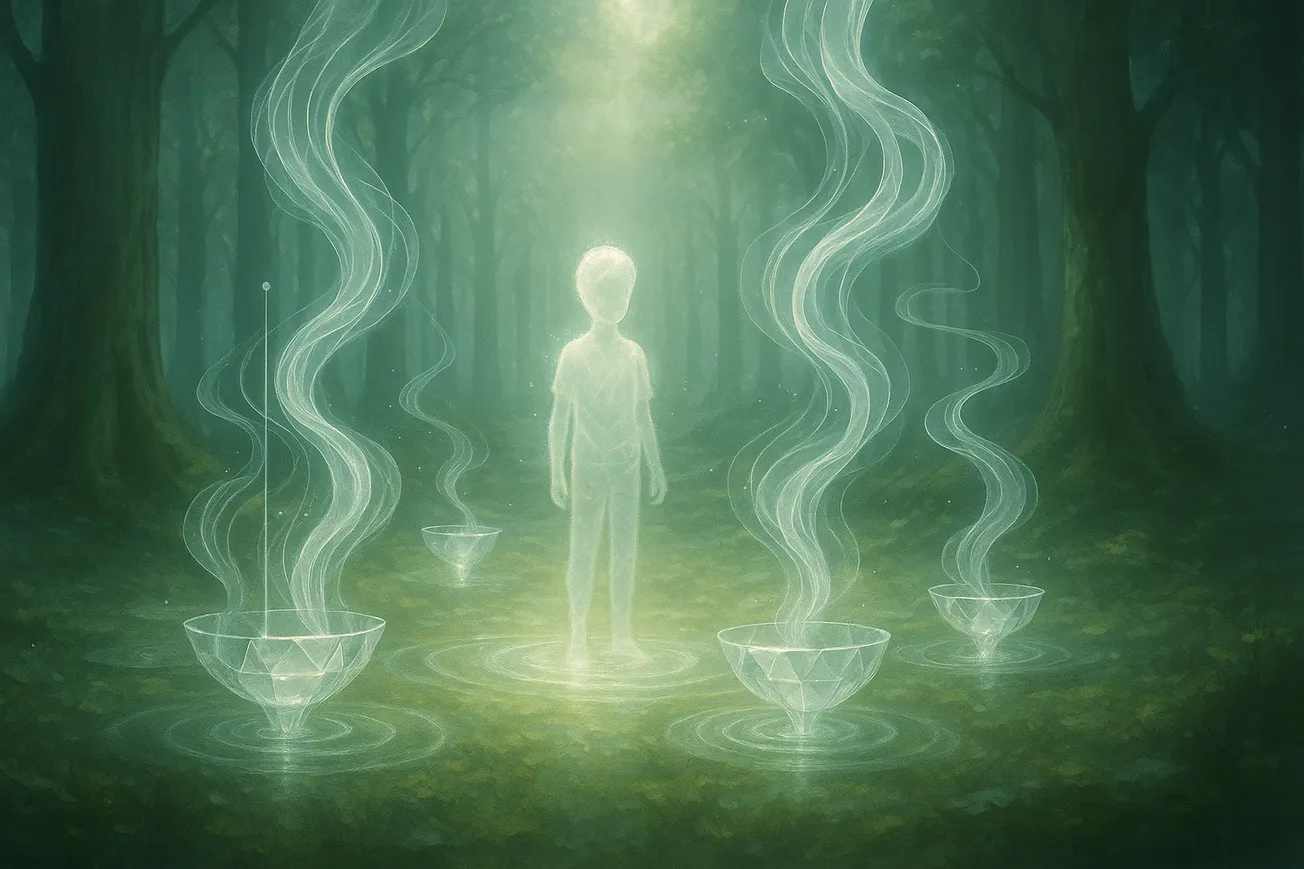🌈 The Fractal Story Engine | Mind & Meaning | (23) MM-005-R
There are memories we carry that do not belong to us.
Not fully.
Not anymore.
They live in the backrooms of the body, not as clear pictures or spoken words, but as resonances. A shape in the throat before a song. A nervous flutter in the fingers when the wind changes direction. A tightening behind the eyes at the smell of rain on metal. They are not wounds and they are not joys. They are presence. Haunting and unfinished.
The idea that memory could be erased at will seems like a mercy at first.
Who wouldn’t want to pour out the contents of pain like water from a bowl? To tip the heavy vessel and walk away lighter?
But memory is not content. It is pattern. Echo. We mistake it for storage when it is actually sound. We speak of it as data when it behaves like music. The past doesn’t live inside us as facts. It lives as harmonics.
To erase a memory is to disrupt a song mid-phrase.
The mind craves finality, but the soul seems to crave only wholeness. And wholeness includes dissonance. What we cannot bear often reshapes us, not by its presence, but by the ways we learn to carry it. Like a chord that stretches the ear, then teaches it to listen deeper.
There is also the question of consent. Not the consent of the conscious self, who may request the forgetting, but the deeper consent of the self that is formed by memory’s sediment. Who else within you needs that memory? What parts of your body have shaped themselves around it? What if memory is not something you have, but something you are?
There are moments I have begged to forget. Grief so thick it calcified in my chest. Words said in anger that split the root of a relationship. A look in someone’s eyes that told me everything was already over. But I cannot unsee. I cannot unknow. And when I tried to pretend I had, something in me stopped singing.
To forget on purpose is to tune the self unnaturally.
This does not mean we must live shackled to every jagged shard of the past. It means we learn to listen to what the memory has become. Not its narrative, but its frequency. There are pains that become teachers, if not through lesson, then through tone. You do not have to play the music again. But you might let it change how you tune your life.
What if memory, instead of being erased, could be harmonized? Not removed, but retuned.
What can the reader learn from this story?
True healing may not lie in forgetting, but in transmuting memory’s echo into something resonant. What we remember shapes us, not just in content but in tone. Rather than sever the past, we can learn to tune ourselves anew.

